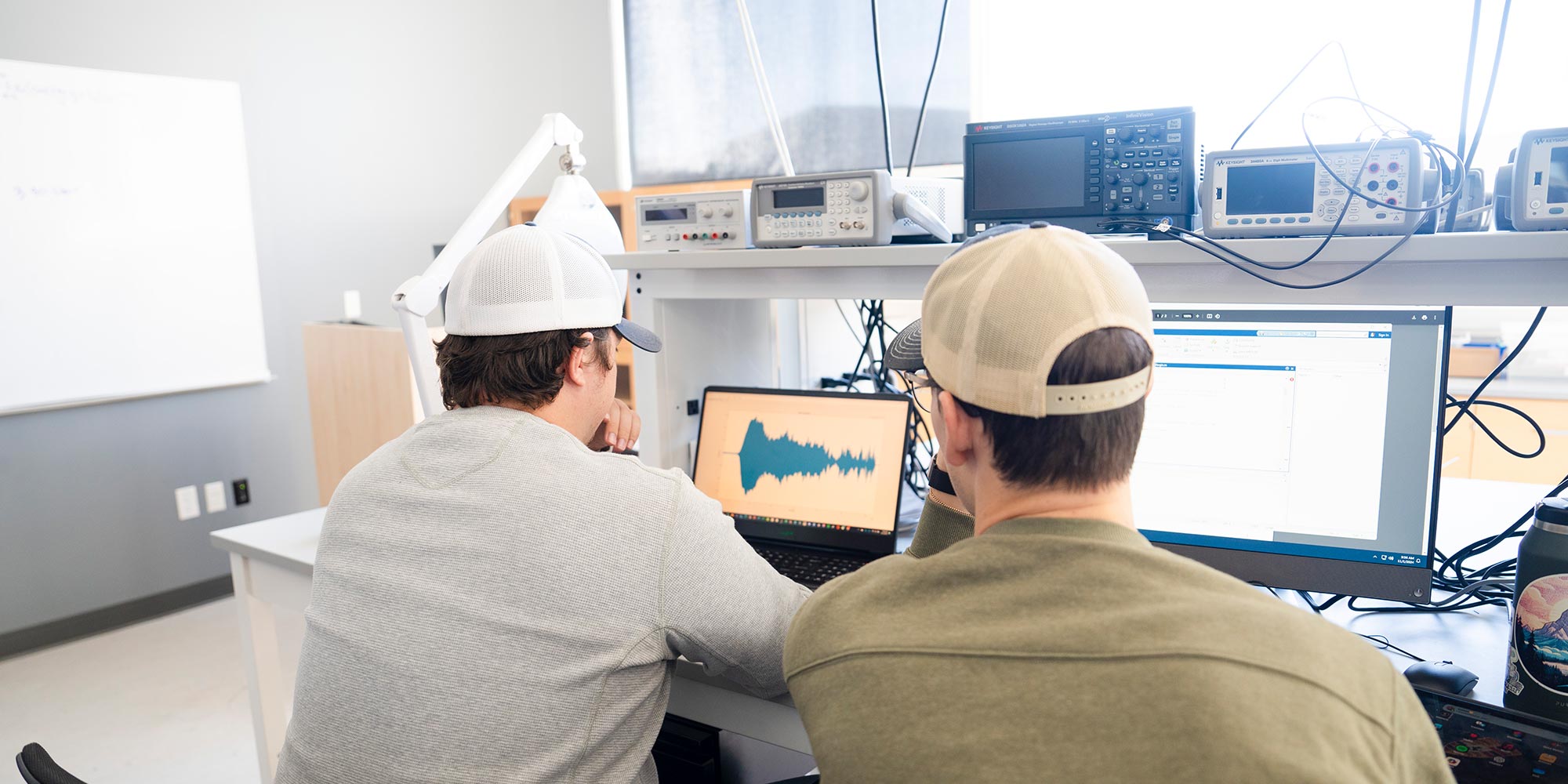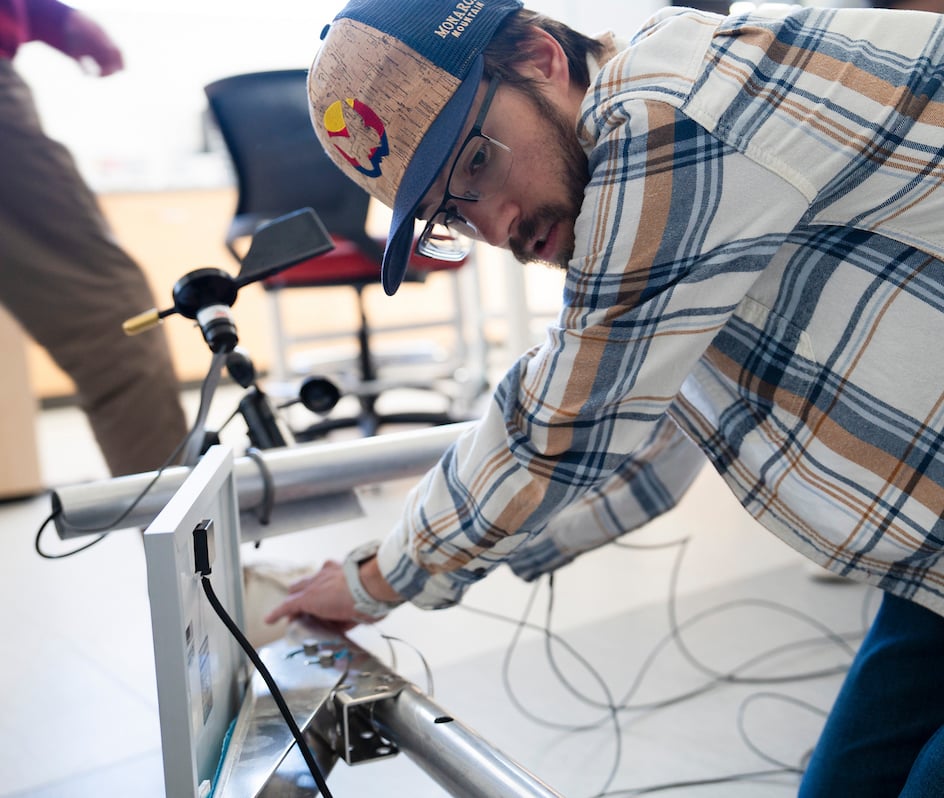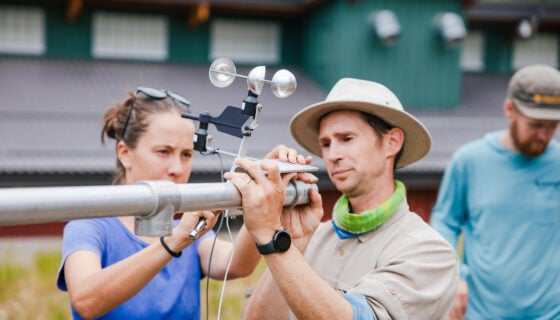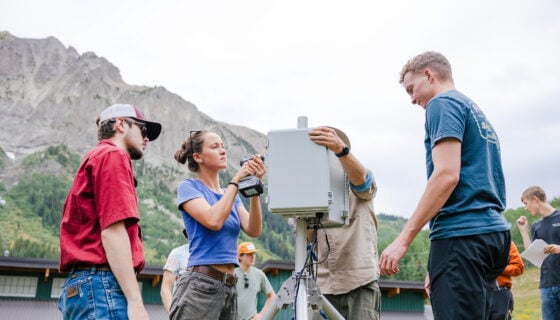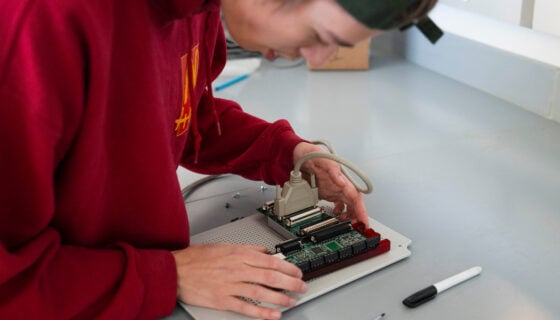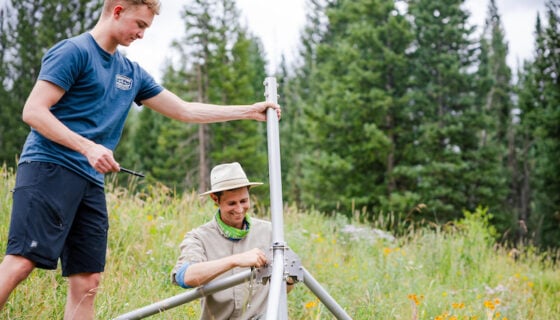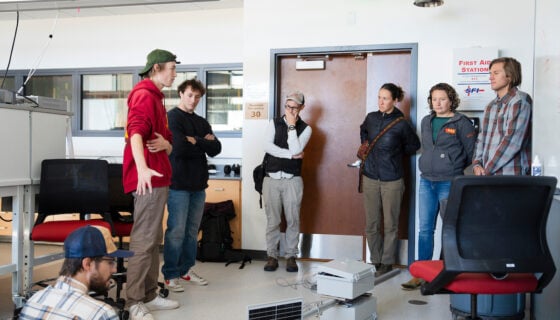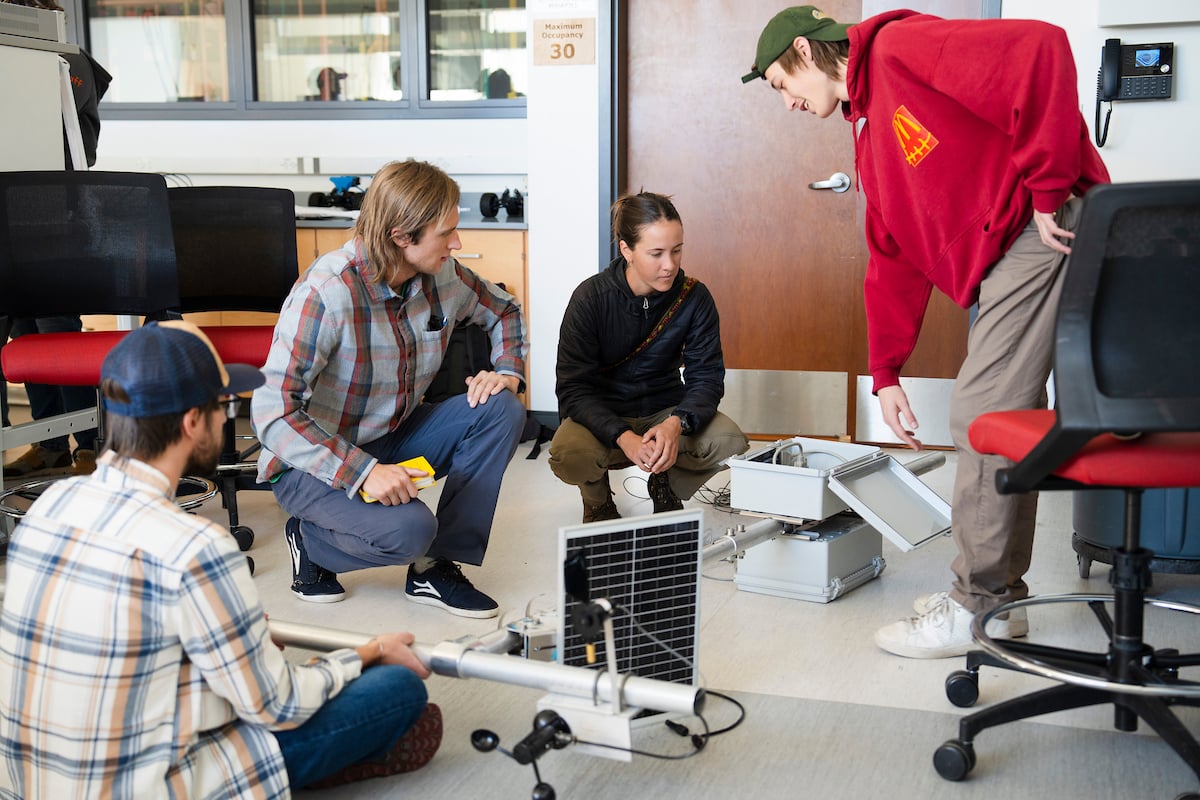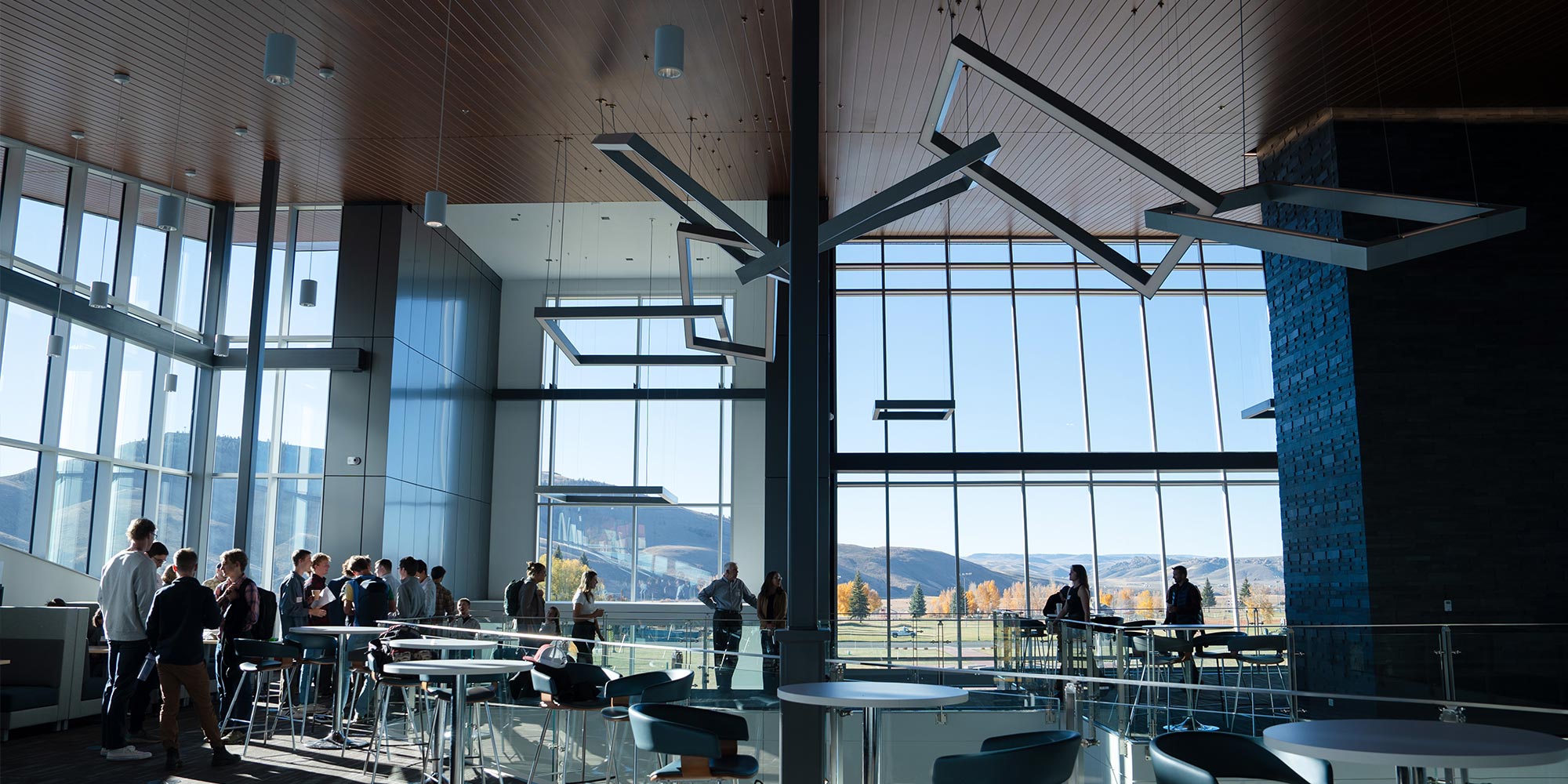Engineering Solutions for a Changing World
Through Western’s partnership with the Rocky Mountain Biological Laboratory (RMBL), engineering students have the chance to apply their skills to pressing environmental challenges while contributing to groundbreaking research. From using drones to track snowmelt patterns with the RMBL Snow Coverage Tool to designing climate sensors for the RMBL Sensor Suite, you’ll engage in projects that connect technology with sustainability.
